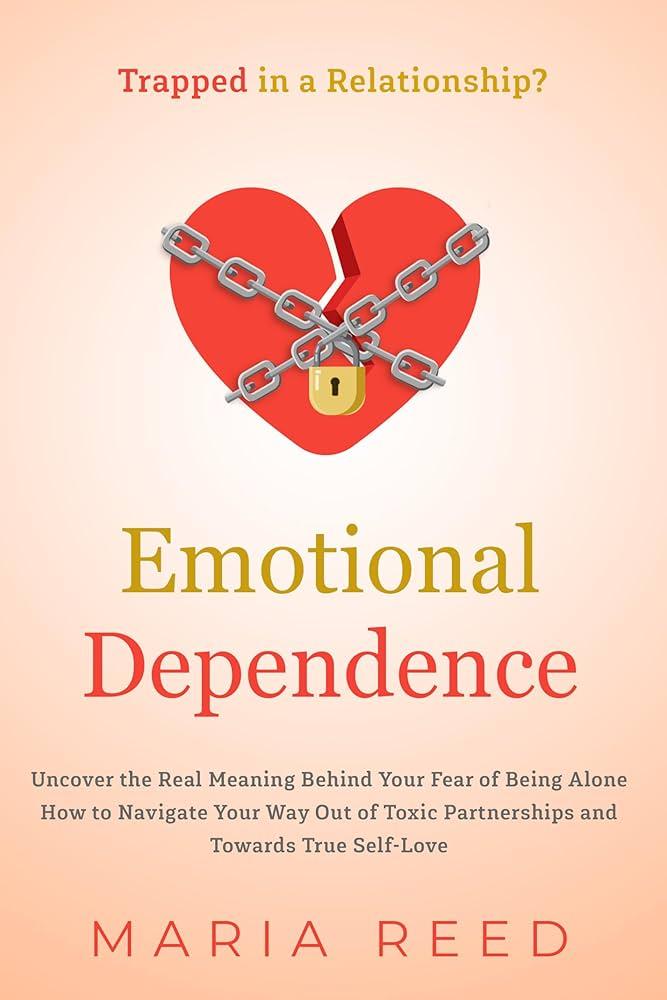In the intricate dance of human connection, relationships often teeter on a delicate balance of intimacy and independence. As partners navigate the ebb and flow of emotional tides, the question arises: can too much emotional dependence cast a shadow over the harmony of a relationship? In a world where vulnerability is both celebrated and feared, understanding the nuances of emotional reliance becomes paramount. This article delves into the complex dynamics of emotional dependence, exploring its potential to either strengthen the bonds of love or unravel the very fabric that holds partners together. Through a neutral lens, we will examine the fine line between supportive interdependence and stifling reliance, offering insights into how couples can nurture healthy emotional connections without losing themselves in the process.
The Fine Line Between Support and Dependence
In the intricate dance of relationships, finding the balance between providing support and fostering emotional dependence can be challenging. It’s natural to lean on one another during times of need, but when does this reliance become too much? The key lies in recognizing the signs of excessive dependence, which can quietly erode the foundation of even the strongest bonds. While emotional support can act as a glue that binds partners together, over-dependence might lead to an unhealthy dynamic where one person feels burdened and the other feels powerless.
- Encouragement vs. Enablement: Support should inspire growth and self-sufficiency, not foster reliance.
- Shared Joys and Sorrows: Celebrate successes together but also maintain individual identities.
- Open Communication: Addressing needs openly can prevent feelings of suffocation or neglect.
Striking a healthy balance requires a mindful approach, where both partners nurture their individual strengths while cherishing the bond they share. This delicate equilibrium ensures that love thrives without becoming a tether that restricts personal growth.

Recognizing Signs of Unhealthy Emotional Reliance
In any relationship, it’s essential to be aware of the subtle indicators that emotional reliance may be tilting toward unhealthy levels. One of the first signs is the constant need for reassurance. While seeking support is normal, an excessive demand for validation can indicate an imbalance. Another red flag is the inability to function independently. When one partner feels they can’t make decisions or pursue interests without the other’s input, it might suggest a dependence that stifles personal growth.
- Neglecting personal interests: Losing touch with hobbies and passions that once brought joy can indicate an over-reliance on the relationship for fulfillment.
- Feeling incomplete without the partner: A pervasive sense of incompleteness or anxiety in the partner’s absence may highlight an unhealthy attachment.
- Fear of conflict: Avoiding disagreements at all costs to maintain harmony can prevent authentic communication and personal expression.

Cultivating Emotional Independence for Stronger Bonds
In relationships, nurturing a sense of emotional independence can be the key to developing a more profound connection with your partner. When each individual brings a complete and confident self to the table, the relationship is enriched with authenticity and mutual respect. Emotional independence allows partners to appreciate each other’s unique qualities without feeling overshadowed or dependent. This balance fosters a sense of security and trust, creating a fertile ground for genuine intimacy to flourish.
- Personal Growth: Encourages self-discovery and self-reliance.
- Reduced Pressure: Alleviates the burden of meeting all emotional needs.
- Increased Resilience: Strengthens the ability to face challenges together.
- Enhanced Communication: Promotes honest and open dialogues.
By cultivating emotional independence, partners can enjoy a relationship where both individuals are free to express their true selves. This dynamic not only strengthens the bond but also allows for a more harmonious and fulfilling partnership.

Practical Steps to Foster Healthy Emotional Connections
Developing healthy emotional connections requires a blend of understanding, communication, and personal growth. To nurture these bonds, it is crucial to strike a balance that allows each partner to thrive individually while also supporting one another. Begin by embracing open and honest communication. Encourage discussions that are both empathetic and assertive, ensuring that each person feels heard and respected. This fosters a sense of trust and security, which are essential for any strong relationship.
- Practice active listening: Give your full attention during conversations, showing genuine interest in your partner’s thoughts and feelings.
- Establish boundaries: Clearly define what is comfortable and acceptable in the relationship to prevent over-dependence.
- Encourage individual growth: Support each other’s personal goals and hobbies, promoting a sense of independence.
- Regularly check-in: Make it a habit to discuss emotional needs and expectations, adapting to changes as the relationship evolves.
By taking these practical steps, couples can create a balanced and fulfilling relationship where emotional connections are nurtured without becoming overwhelming or restrictive. This approach not only enhances intimacy but also strengthens the resilience of the partnership.








